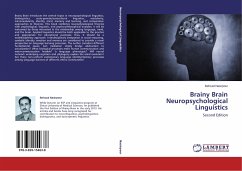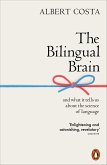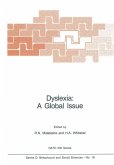Brainy Brain introduces the central topics in neuropsychological linguistics, biolinguistics, socio-genetic/sociocultural linguistics, modularity, micromodularity, identity, mind, memory and learning, and comparative approaches to theories. This book combines neurophysiological theories with psychological, linguistic, and psycho-philosophical analyses; it will be welcomed by those interested in the relationship among language, mind, and the brain. Applied linguistics should be both applicable to the practice and appropriate for educational purposes; thus, it should be a multidisciplinary approach. Interdisciplinary integration in social reasoning, symbolic identity, emotion and memory are considered to provide a novel perspective on language learning processes. The author considers different fundamental issues: Can mediation simply bridge abstraction to actualization? What biological processes make human communication and meta-communication feasible? Is language phenotypic? Will neural network underlying cognition and phylogeny explain the mind evolution? Are there non-uniform evolutionary language identity/memory processes among language learners of different ethnic communities?
Bitte wählen Sie Ihr Anliegen aus.
Rechnungen
Retourenschein anfordern
Bestellstatus
Storno








